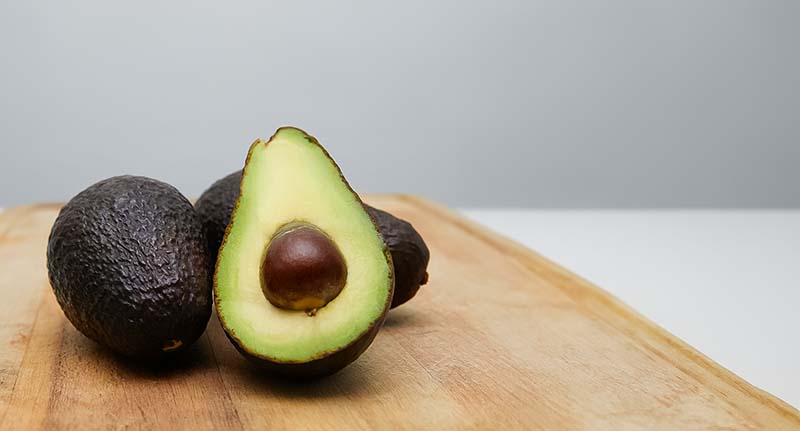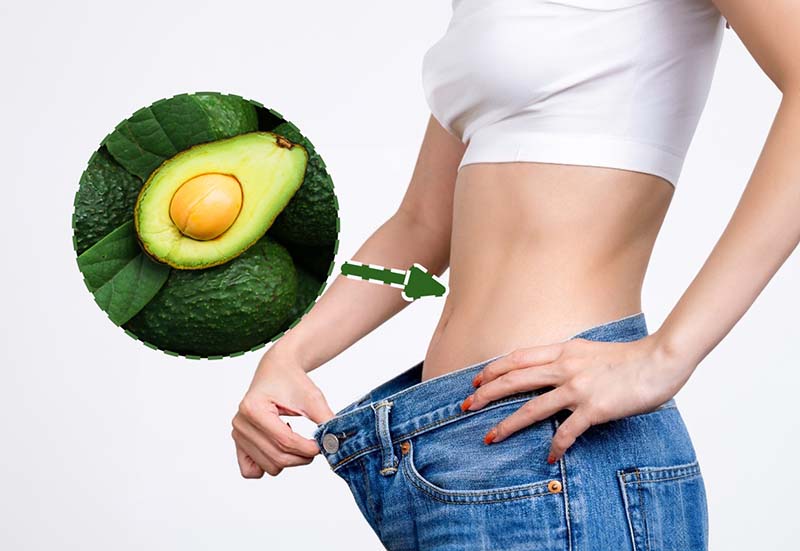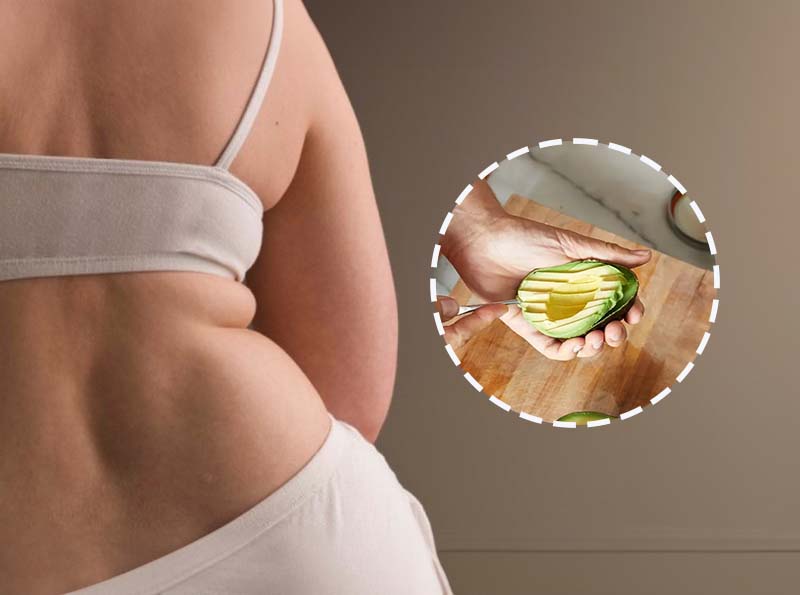Avocado stands out as a superfood, celebrated not only for its creamy texture but also as an important aid in weight loss efforts. This nutrient-rich, green fruit is much more than a tasty addition to meals; it’s a versatile and effective tool for anyone looking to shed extra pounds. Loaded with essential nutrients and healthy fats, avocados can play a pivotal role in your diet.
They offer numerous benefits, from firing up your metabolism to helping keep unhealthy snacking at bay. In this article, we explore the question, “Can Avocado Help You Lose Weight?” and uncover how avocados can be more than just a delicious treat—they can be a cornerstone in achieving your health and fitness objectives, providing both nourishment and support in your weight loss journey.
Can Avocado Help You Lose Weight?
Incorporating avocados into a weight loss regimen can be beneficial, thanks to their rich nutrient profile, high fiber, and healthy fats. These attributes contribute to feeling fuller for longer, potentially aiding in weight control. However, moderation is key. Avocados are calorie-dense, with about 240 calories per fruit, so monitoring your daily calorie intake and portion size is crucial.
Research hints that avocados may enhance feelings of fullness and support weight loss efforts, but more studies are needed to confirm this. For a healthier diet, consider replacing harmful fats with avocado. They are versatile and can be included in a variety of nutritious, low-calorie meals.

Nutritional Information of Avocado
Avocados are packed with good stuff for your health. In a half avocado, which is about 3.5 ounces or 100 grams, there are around 160 calories. This amount gives you:
· Vitamin K: 18% of the daily value (DV)
· Folate: 20% of the DV
· Vitamin C: 11% of the DV
· Potassium: 10% of the DV
· Vitamin E: 14% of the DV
Plus, avocados have a decent amount of niacin, riboflavin (that’s vitamin B2), copper, magnesium, manganese, and even some antioxidants.
They’re also low in carbs, which is not very common for fruits. In that half avocado, there are only 9 grams of carbs, and 7 of those are fiber. Fiber is great for your digestive health.
What makes avocados unique among fruits is their fat content. They’re about 15% fat, but it’s mostly the healthy kind of fat that’s good for your heart.
Benefits of Avocado for Weight Loss
Avocados offer a range of benefits for those looking to lose weight, making them a valuable addition to a healthy diet. Here are some key benefits:
Reduction of Belly Fat
Avocados might just be the superfood you need to target that stubborn belly fat, especially the dangerous visceral kind linked to heart issues and type 2 diabetes. Emerging studies suggest that introducing an avocado into your daily diet can play a key role in reducing abdominal fat.
The secret lies in the monounsaturated fats found in avocados. These fats are linked to several health benefits: they boost fat burning, reduce belly fat, and could even lead to a lower Body Mass Index (BMI). What’s particularly interesting about these fats is their potential to rev up your metabolism shortly after eating. They seem to increase fat
oxidation – your body’s way of breaking down fats for energy – and also ramp up thermogenesis, the process of heat production in your body.
This increase in thermogenesis can lead to a slight rise in your metabolism, which in turn can contribute to a bit more calorie burning throughout the day. So, incorporating avocados into your meals might not only help you trim down your waistline but also enhance your body’s fat-burning ability and give your metabolism a boost post-meal.

Appetite Suppression
A fascinating study revealed that eating a whole avocado for breakfast can significantly increase feelings of fullness and reduce calorie intake throughout the day. This effect is attributed to the rich nutritional profile of avocados, particularly their high fiber content.
A large avocado boasts about 13 grams of fiber, almost half of the recommended daily intake for adults. Plus, it contains only 3.5 grams of net carbs. Fiber, being a carbohydrate that the body doesn’t easily digest, is believed to have minimal impact on blood sugar levels. Stable blood sugar is crucial for maintaining consistent energy levels, mood, and controlling appetite.
Moreover, fiber plays a key role in promoting a sense of fullness by attracting water to the gut, which aids in healthy digestion. This increased satiety can lead to longer intervals between meals and a reduced overall calorie intake.
In addition to fiber, avocados are rich in healthy fats that are known to enhance feelings of fullness. This aspect is particularly appreciated by those following a keto diet, who often cite foods like avocados as key to reducing hunger pangs.
Enhancement of Diet Quality
Regular consumption of avocados might be a key factor in achieving optimal health, as suggested by the National Health and Nutrition Examination Survey (NHANES), a program conducted by the Centers for Disease Control and Prevention (CDC).
Findings from this survey, which were published in the Nutrition Journal, indicate a strong correlation between eating half a medium-sized avocado daily and a significant enhancement in overall diet quality. Remarkably, this avocado intake is also associated with a 50% reduction in the risk of metabolic syndrome.
Metabolic syndrome is a cluster of conditions like high blood pressure, high blood sugar, excess body fat around the waist, and abnormal cholesterol levels, which together increase the risk of heart disease, stroke, and type 2 diabetes. The implication here is that incorporating avocados into your daily diet could be a simple yet effective way to improve your dietary habits and potentially safeguard against these serious health issues.
Facilitation of Nutrient Absorption
Vegetables, low in calories and rich in vitamins and essential nutrients, are incredibly beneficial for those looking to reduce waist size. However, to fully reap their benefits, adding a bit of fat is crucial, as per research findings.
When it comes to the type of fat to add, avocados emerge as the champion. A study in Molecular Nutrition & Food Research compared the effects of salads topped with different kinds of fats – saturated, monounsaturated (like in avocados), and polyunsaturated.
They found that vegetables paired with monounsaturated fats, such as those in avocados, required the least amount of fat (just 3 grams) to maximize absorption of fat-soluble carotenoids. These compounds are known for their role in disease prevention and aiding weight and fat loss. In contrast, dressings with saturated and polyunsaturated fats needed higher amounts (20 grams) to achieve the same level of carotenoid absorption.
Further emphasizing the power of avocados, another study in the Journal of Nutrition discovered that adding avocado to a salad boosted carotenoid absorption by three to five times. Enhance your greens with a splash of guacamole, a few slices of fresh avocado, or a drizzle of avocado oil-based dressing for the ultimate nutrient upgrade. Those opting for dressing on the side might be missing out on these benefits.

Lowering of ‘Bad’ Cholesterol
A study in the Journal of the American Heart Association sheds light on this, involving 45 overweight individuals who followed one of three different cholesterol-lowering diets over five weeks.
One of these diets was low-fat, deriving 24% of its total calories from mostly saturated fats, and did not include avocado. The second, a non-avocado diet, was moderate in fat (34% of calories from mostly saturated fats). The third diet, also moderate in fat (34%), swapped some saturated fats for a whole Haas avocado each day.
The findings were significant. Those on the avocado-inclusive diet experienced a reduction in low-density lipoprotein (LDL), commonly known as the “bad” cholesterol, by 13.5 mg/dL compared to the low-fat group. This decrease is substantial enough to notably lower the risk of heart disease. Researchers suggest that the monounsaturated fats in avocados, which are heart-healthy fats with one unsaturated carbon bond, might be key in reducing high cholesterol levels. High cholesterol is a known contributor to insulin resistance, excess weight, and obesity.
So, it might be time to rethink your snack choices. Enjoying an avocado with just a sprinkle of kosher salt or your favorite spice could be a delicious and heart-healthy addition to your daily diet.
Antioxidants Combating Free Radicals
Inside your body, there’s a constant battle against free radicals, which are harmful oxygen molecules produced naturally during metabolism. These free radicals can initiate chain reactions that damage cells and DNA, leading to a host of health problems.
The key players in protecting our bodies are antioxidants, found abundantly in fresh fruits and vegetables. These antioxidants can neutralize some free radicals, but they face a significant challenge: they can’t easily penetrate mitochondria, the cells’ powerhouses. When mitochondria are compromised, your metabolism suffers, becoming less efficient.
This is where avocados come into the picture. Avocados contain unique properties that might just be the ally your body needs in this internal war. The fruit’s nutritional profile is similar to that of olive oil, a staple in the famously healthy Mediterranean diet, which is associated with low disease rates. The similarity between avocado and olive oil has led researchers to suggest that avocado oil could be the “olive oil of the Americas.”
By incorporating avocados into your diet, you’re not just making a delicious choice, but also a strategic move to support your metabolism and overall health. So, it’s time to ditch the white flag and embrace the green fruit, both for its metabolic benefits and as a nod to the rich nutritional heritage of the Americas.
Potential Reduction in Diabetes Risk
Avocados are more than just a source of healthy fats; they are a powerhouse of essential nutrients crucial for healthy weight management. This remarkable fruit provides nearly 20 vitamins, minerals, and phytonutrients. Among these, avocados are particularly rich in fiber, with 14 grams per serving, contributing to satiety and regular digestion. Additionally, they deliver a substantial 66% (60 micrograms) of the daily requirement for vitamin K, a vital nutrient for regulating sugar metabolism and insulin sensitivity. The impact of vitamin K on long-term health outcomes is noteworthy. A study published in the journal Diabetes Care highlighted the significance of this vitamin in diabetes prevention. The research found that men and women who were in the highest 25% bracket for vitamin K intake had a 19% lower risk of developing diabetes over a 10-year period, compared to those in the lowest quartile of intake.
This finding underscores the importance of including vitamin K-rich foods, like avocados, in your diet. Not only do they support weight management, but they also play a key role in maintaining blood sugar levels and reducing the risk of diabetes. So, adding avocados to your meals isn’t just a tasty choice, but a smart one for your overall health.
Boosting Metabolism and Endurance
Pre-workout supplements are often touted for their ability to enhance exercise endurance. Interestingly, avocados might offer a natural alternative to these supplements. A study in the American Journal of Clinical Nutrition looked at the effects of two different diets — one high in palmitic acid (a saturated fat) and the other high in oleic acid (a monounsaturated fat, abundant in avocados).
Participants switched between these diets for three-week periods, allowing researchers to measure changes in physical activity and metabolic rate post-meal. The findings were quite revealing. On the high oleic acid diet, physical activity levels were 13.5% higher, and post-meal metabolism increased by 4.5% compared to the period on the high palmitic acid diet.
These results suggest that replacing foods high in saturated fats (like fried foods, baked goods, and butter) with those rich in monounsaturated fats (such as avocados or avocado oil) could provide a significant, clean energy boost. This boost not only enhances workout performance but also keeps your metabolism active even after leaving the gym. So, for those looking for a more natural way to fuel their workouts and support their metabolism, avocados could be a valuable addition to their diet.
Is Eating Avocado Everyday Good for Weight Loss?
Yes, eating an avocado every day can be beneficial for weight loss, according to some early research. For example, one study found that including an avocado in a daily, calorie-reduced diet aided weight loss and also positively changed the gut microbiota in overweight and obese individuals. The gut microbiota plays a crucial role in your overall health and can impact weight management.
Avocados are rich in fiber and healthy fats, which can help you feel full and satisfied. This can lead to eating fewer calories overall, a key factor in weight loss. However, it’s important to remember that avocados are also relatively high in calories, so they should be included as part of a balanced diet.
Incorporating an avocado into your daily diet, while maintaining an overall healthy and calorie-conscious eating plan, can be a great strategy for weight loss and improving gut health.
Conclusion
Avocados can indeed be a powerful ally in your weight loss journey. This superfood, rich in nutrients and healthy fats, offers more than just great flavor—it actively supports your fitness goals in a variety of ways. Avocados are known for boosting metabolism and curbing cravings, making them an integral part of a weight loss diet. Have you experienced the benefits of avocados in your health journey?
We’d love to hear your stories and experiences in the comments below. And for those wondering, “Can avocado help you lose weight?” the answer is a resounding yes. For more insights into achieving a healthier lifestyle, be sure to explore more blogs from Sure Life Health.
Professor Gaye Cunnane, PhD, MB, FRCPI
As the Director of Health and Wellbeing at RCPI, Professor Gaye Cunnane is at the helm of initiatives aimed at enhancing the health and well-being of RCPI Trainers and Trainees. Her role extends beyond administration; she is also a respected clinical professor of rheumatology and a consultant rheumatologist at Trinity College Dublin (TCD) and St James’s Hospital. Prof. Cunnane’s medical journey began at TCD, where she graduated from medical school, and her path has been marked by both clinical and academic excellence.
After completing her basic clinical training in medicine, she embarked on PhD studies at University College Dublin and St Vincent’s University Hospital. Her research during this period was focused on prognostic markers in early inflammatory arthritis, a project that saw her collaborating with esteemed universities across Europe, including in Switzerland, The Netherlands, the UK, and Sweden.
Prof. Cunnane’s career took her to the University of California, San Francisco, where she spent three years delving into research on new treatments for lupus. Her academic prowess led her to the University of Leeds in 2001 as a senior lecturer, before returning to Ireland in 2003 to assume her current roles. She has also served as the National Specialty Director for Rheumatology training in Ireland, Programme Director for Basic Specialist Training with RCPI, and as a past President of the Irish Society for Rheumatology.
PUBLISHED ARTICLES
“Rheumatic disease differentiation using immunoglobulin G sugar printing by high-density electrophoresis”: Published in The Journal of Rheumatology, this study reflects her in-depth investigation into rheumatic diseases.
“Benefits of exercise in patients with rheumatoid arthritis: a randomized controlled trial”: This research work, highlighting the positive impact of exercise on rheumatoid arthritis, underscores Prof. Cunnane’s dedication to practical, patient-centered research.
Additionally, Prof. Cunnane has made notable contributions to the Annals of the Rheumatic Diseases, discussing early referral, diagnosis, and treatment of rheumatoid arthritis. She has also been involved in a study on the NCBI platform investigating exercise benefits in rheumatoid arthritis patients.
Professor Gaye Cunnane’s career is a testament to her commitment to improving patient outcomes in rheumatology through rigorous research, clinical excellence, and dedicated teaching. Her work continues to influence the field of rheumatology, both in Ireland and internationally.

